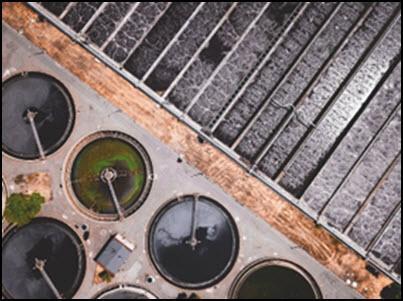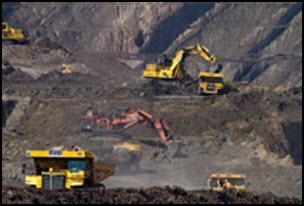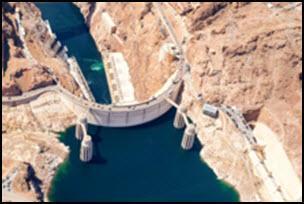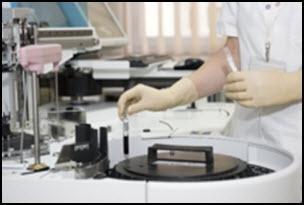5 Sectors That Are Opening Up To People with PLC Training
The PLCs market was valued at $396 US Million in 2017 and is expected to reach approximately $825 US Million by 2024 with a CAGR (Compound Annual Growth Rate) of 11% over this period. North America has been and currently still is the largest PLC market globally and is expected to be the principle growth driver. Asia Pacific majors like India and China are also driving the rise in manufacturing units and pushing the demand for PLCs.
PLCs are traditionally associated with industries like automotive manufacturing and their application in assembly lines and other robotic processes. With constant development in PLC design every year, potential industrial applications for these controllers continue to grow.
Here is a list of 5 sectors/industries where demand for PLC technicians is increasing.
1. Water and Waste Water Treatment
PLCs are involved in municipal waste water treatment processes including mechanical treatment, biological and chemical treatment, sludge treatment, and other procedures. PLC technicians could also find themselves being involved in ensuring smooth operations at the grid well units, biochemical pool units, oxidation ditch, returning and residual sludge pump room, sludge concentration tank and filter backwash control, to name a few.
Water management projects at sawmills, hydroelectric facilities, and medical laboratories, also utilize a variety of PLC and sensor technologies. PLC technicians work on operations in the water treatment and purification room, chemical adding and chlorination room, outlet water pump room, sludge dewatering room, purified water production workshop and even the heat exchange room.

2. Mining Sector
Underground mining requires advance instrumentation for sustainable growth and safety of miners. Factors such as emission of trapped poisonous gases, concentration of flammable gases, strata conditions, temperature, air velocity, humidity, etc., need to be constantly monitored using PLCs. Additionally, in mining, PLC controls many electrical and mechanical devices such as sensors (for e.g. gas sensors, temperature sensors), alarming devices (for e.g. a Gas Monitoring and Alarm System), mine blasting, excavation, loading and transportation (for e.g. a controlling conveyor belt system), monitoring of strata conditions and ventilation systems as well as monitoring / controlling switches, motors, extensometers, buzzers, hydraulic and pneumatic valves, solenoid valves, and convergence meters. PLCs are also required in coal processing facilities but are also finding their way into the tungsten and diamond mining industries.

3. Energy and Power
Geo Thermal power plants dig into the Earth’s core to capture ground heat and generate electricity. PLC systems are used to collect the heated water from below, use it for energy production and then put it back into the ground. Similarly, PLC systems are also used in hydroelectric projects where PLC and SCADA systems effectively control the level of water in the dam, opening the gates of the dam whenever the level deviates. PLCs are used to implement everything including unit start and stop sequences, speed governing, equipment condition monitoring, alarm logic and response, station water level control, water flow management, and other specialized functions. Notably, a good PLC programmer can also find work on a wind farm, maintaining and servicing wind turbines. Tasks here might include temperature testing and pitch battery tests.

4. Forestry, Wood Processing and Paper
PLC controllers are used to monitor and control paper manufacturing machines during production processes like mechanical pulping, waste paper repulping, etc. While PLCs mainly look after the production process of newspaper and book pages, they are also increasingly being used in other general forestry and wood industry applications. Some of the common uses for PLCs are in debarkers, fixed and moving saw bucking systems, log rotation, straight and curve-saw primary breakdown lines, green board edgers and trimmers, planer mill board trimmers, lumber sorting and stacking, waste systems as well as boilers and kilns.
5. Pharmaceuticals Industry
Typically, a PLC control system in the pharmaceutical industry works with packaging machines, batch controls, capsule filling machines, air handling units and purified water systems. Some examples of PLC application in the pharmaceutical industry are Autoclave Control Systems, Vial Capper Machines, Validation Reports, R&D Operations, Vial Washing and Vial Labeling to name a few.

Notably PLC usage is also increasing in the ‘Glass Production’, ‘Chemical Manufacturing’ and ‘Building Products / Cement Manufacturing’ industries. The broad demand for trained PLC technicians is increasing and new doors to employment are constantly being opened. So don’t restrict your career options, call us toll-free at 1-888-553-5333, and speak to a Program Consultant to learn more.
